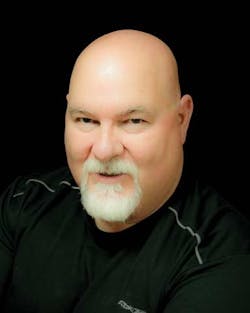In last month’s article, we took a look at the ABCs of selling. The old-school version of ABC was Always Be Closing. I suggested that the new-school ABCs are Alignment-Balance-Closure.
The old-school version is more sale-centric, and the new-school version is more consumer-centric. The goal, of course, is to make the sale, but the primary difference is the approach.
Statistics show that customers have not and do not like high-pressure salespeople. The new-school version of ABC requires sales associates to take the time to mutually align their thinking with the customer’s thinking, and vise-versa.
Once the alignment has taken place through listening and affirming, it’s time to bring balance into the sales process. Balance is the process of arranging the customer’s wants, concerns, time and budget, along with your ability to satisfy their needs.
For example, if your customer needs four specific tires immediately and you can’t supply them, but the tire store across the street can, you are out-of-balance in the sale, and you will not have closure.
Almost as important to the practical/physical side of balance, having the right tire, the right tire brand, or the right speed rating, etc., is having balance with the customer both emotionally and intellectually.
The perfect balance
Balance is critical in any successful sales presentation. The alignment phase is getting yourself and the customer on the same page so you can navigate the critical balance portion of the presentation. Notice I did call it the “balance portion” of the “sales presentation.” There is ample information that indicates people hate the used-car pressure, pressure, pressure approach!
Consumers are looking for someone to help. Remember, today’s consumers have instant access to vast amounts of information about the specific subject or item you are presenting. Chances are you are presenting your products to a person who has gained some fresh information. This information may be a combination of helpful, confusing and conflicting, but you can help them make sense of it all and make a sale in the process.
Several months ago I wrote an article about a young lady in her late sixties who drove a Corvette equipped with run-flat tires. When it came time to replace her tires, she did more than enough research on the Internet. When I encountered her, she schooled me hard because my comments during our communication threw her/us out-of-balance. By regaining balance, I was able to secure the sale.
I’m sorry to say this, but in our industry, salespeople often present information with such authority, inaccuracy and a bullying defensiveness that they simply paint themselves into a corner and destroy the necessary balance.
This week I did some phone shopping at the request of a decades-old independent tire dealer in Los Angeles. I researched a simple standard 195/65R15 fitment and a 20-inch staggered fitment for a 2010 Camaro SS. There still appears to be the idea that it’s necessary to be the fastest tire quoter in the West. The tire salesman never asked me a question. Within 45 seconds of the phone ringing, I had a price of “$325 complete.” I asked what kind of tire, and he told me. I asked him if it came with a mileage warranty, and he said, “40 or 60.” I couldn’t help myself, so I asked, “Only 40 or 60?” He replied, “40 or 60,000.” So I asked, “Which is it, 40,000 or 60,000?” He instantly got loud and defensive.
I think our industry has misunderstood the ABCs. The Always Be Closing idea became Always Bully Customers. Under-trained, under-skilled and indifferent salespeople continue to answer the phones and offer inaccurate, unfriendly information at record speeds with a bullish tone and defensive overtones.
Stop, look and listen!
• Stop answering the phone at Mach speed.
• Stop with the fast-price approach.
• Stop punishing customers calling you with a little information.
• Stop over-talking customers.
Align yourself with customers. Don’t pretend like you care; really care.
• You must balance yourself before you can balance the customer.
• You must be confident of your skills and talents.
• With confidence, the need to be right and/or bully customers will disappear.
Today’s world requires — no, demands — a more professional approach.
• Align yourself to the new reality; consumers know more and expect more.
• Be confident enough to be better, and then be better again.
• Close the book on old, time-worn techniques; be fresh and relevant. ■
Wayne Williams is president of ExSell Marketing Inc., a “counter intelligence” firm based in La Habra, Calif. He can be reached at [email protected].
See more Counter Intelligence articles at:
You better get better, and then better again

